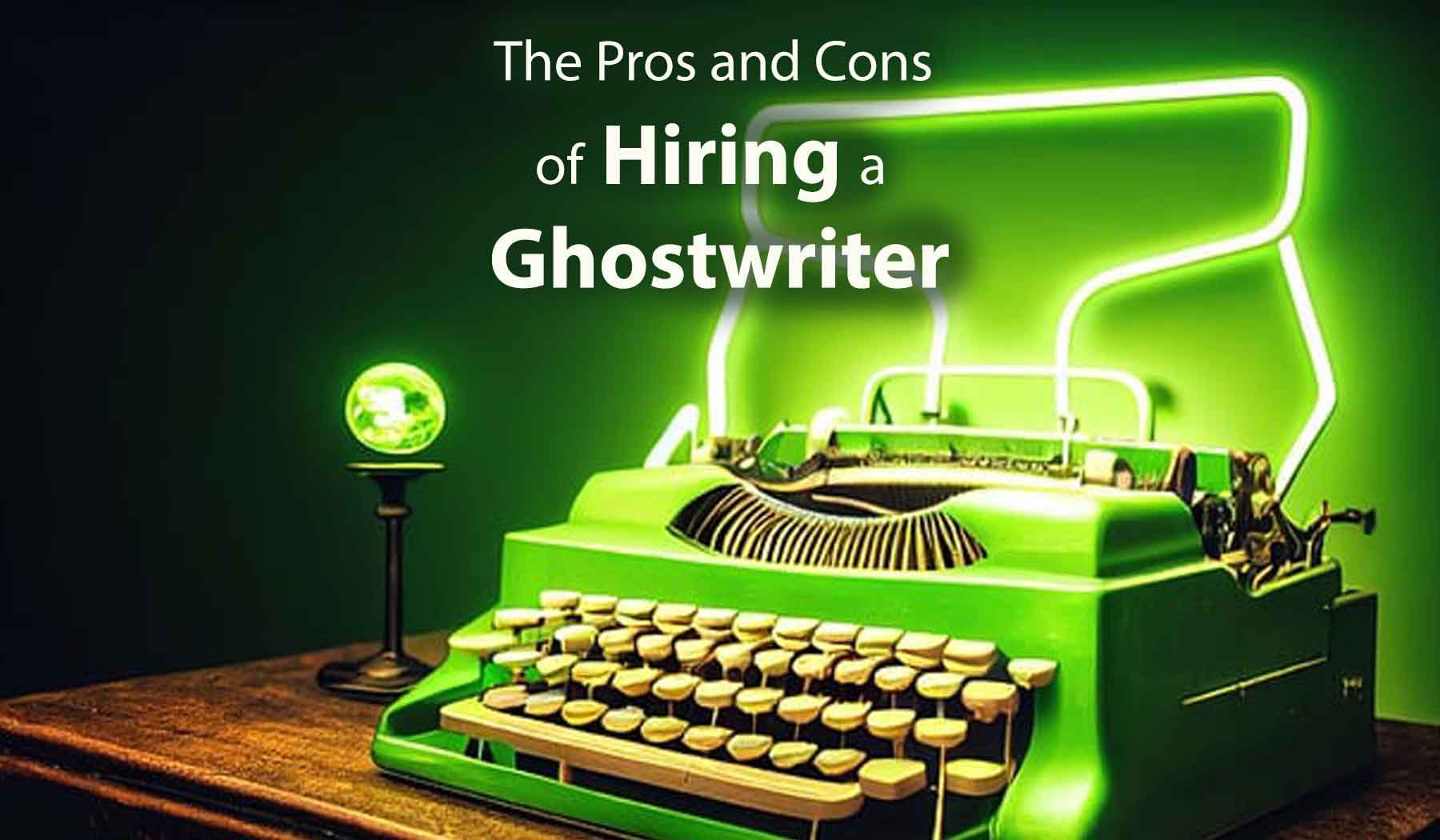In the world of writing and publishing, the term “ghostwriter” has gained popularity and intrigue.
But what exactly is a ghostwriter? Is hiring one a good idea for your writing project?
In this blog post, we will delve into the concept of ghostwriting, explore its benefits and drawbacks, and help you make an informed decision on whether you should hire a ghostwriter for your next endeavor.
Understanding Ghostwriting
Definition and Role
A ghostwriter is a professional writer who is hired to create content on behalf of someone else, often without receiving public credit for their work.
They are essentially “ghosts” behind the scenes, crafting written material that is published under another person’s name.
Common Applications
Ghostwriting is prevalent across various industries and mediums, including:
- Book publishing: Many renowned authors have enlisted ghostwriters to help them produce high-quality books efficiently.
- Celebrity memoirs: Not all celebrities have the time or writing skills to document their life stories, prompting them to collaborate with ghostwriters.
- Business and self-help books: Industry experts or thought leaders often hire ghostwriters to articulate their ideas and experiences in a coherent and engaging manner.
- Blogging and online content: Influencers, entrepreneurs, and website owners sometimes hire ghostwriters to maintain a consistent flow of content and meet audience demands.
Pros of Hiring a Ghostwriter
Expertise and Skill
Ghostwriters are professionals with extensive writing experience, allowing them to deliver polished and well-crafted pieces.
Benefits include:
- Language mastery: Ghostwriters possess a strong command of grammar, style, and tone, ensuring your content is impeccable.
- Structure and organization: They excel in structuring information and creating engaging narratives, capturing readers’ attention effectively.
- Research skills: Ghostwriters are adept at conducting thorough research, incorporating accurate information into your work.
Time Efficiency
Collaborating with a ghostwriter can save you valuable time, especially if writing is not your forte or if you have a busy schedule.
Benefits include:
- Focus on other tasks: Delegating writing responsibilities allows you to concentrate on core competencies or other pressing matters.
- Meeting deadlines: Ghostwriters are skilled at managing timelines, ensuring your content is delivered promptly.
Expert Collaboration
Engaging a ghostwriter often means partnering with someone who is well-versed in your industry or genre.
This collaboration offers several advantages:
- Industry knowledge: Ghostwriters can provide valuable insights and expertise, enhancing the credibility and accuracy of your content.
- Matching your voice: Skilled ghostwriters can adapt their writing style to mimic your tone, making the final piece sound authentically like you.
Cons of Hiring a Ghostwriter
Loss of Creative Control
One of the main drawbacks of hiring a ghostwriter is relinquishing complete control over the writing process.
Consider the following concerns:
- Authenticity: Since the content is crafted by someone else, it may lack your unique perspective and personal touch.
- Voice mismatch: Despite attempts to match your tone, there may still be subtle differences that discerning readers could detect.
Cost Considerations
While the expertise and time savings provided by ghostwriters are valuable, it is important to evaluate the financial implications:
- Budget constraints: Hiring a skilled ghostwriter can be costly, particularly for large-scale projects or ongoing collaborations.
- Return on investment: Assess whether the benefits of hiring a ghostwriter outweigh the financial investment for your specific goals.
Ethical Concerns
Ghostwriting raises ethical questions that may give some individuals pause:
- Attribution and transparency: Some readers expect transparency about authorship, which ghostwriting may complicate.
- Misrepresentation: If the ghostwriter’s involvement is undisclosed, it could be viewed as deceiving the audience.
Should You Hire a Ghostwriter?
Deciding whether to hire a ghostwriter depends on several factors that are specific to your situation.
Consider the following questions:
1. What are your writing goals and priorities?
Evaluate the importance of maintaining creative control versus the need for professional quality and efficiency.
If your priority is to produce high-quality content within a tight timeline, hiring a ghostwriter may be beneficial.
2. Do you have the necessary skills and time to write?
Honest self-assessment is crucial. If writing is not your strong suit or if you have limited time available, hiring a ghostwriter can ensure your ideas are effectively communicated without compromising other responsibilities.
3. Can you afford a ghostwriter?
Ghostwriting services vary in cost, so it’s essential to assess your budget and the potential return on investment.
Consider the value that professional writing can bring to your project and weigh it against the financial implications.
4. Are you comfortable relinquishing creative control?
If maintaining your unique voice and perspective is of utmost importance, working with a ghostwriter may not align with your vision.
It’s crucial to find a balance between maintaining authenticity and benefiting from the expertise of a skilled writer.
5. Are you transparent about the use of a ghostwriter?
Consider the expectations of your audience and the ethical implications of using a ghostwriter.
Transparency about the involvement of a ghostwriter can help manage potential concerns of misrepresentation or deception.
Your Specific Circumstances and Goals
Ghostwriters offer a valuable service for individuals and organizations looking to produce high-quality written content efficiently.
Their expertise, time-saving abilities, and industry knowledge make them a desirable option for many writing projects.
However, it is essential to carefully consider the potential drawbacks, such as loss of creative control and financial implications.
Ultimately, the decision of whether to hire a ghostwriter depends on your specific circumstances and goals.
By assessing your priorities, skills, budget, and comfort level with relinquishing control, you can make an informed choice that aligns with your vision and objectives.







